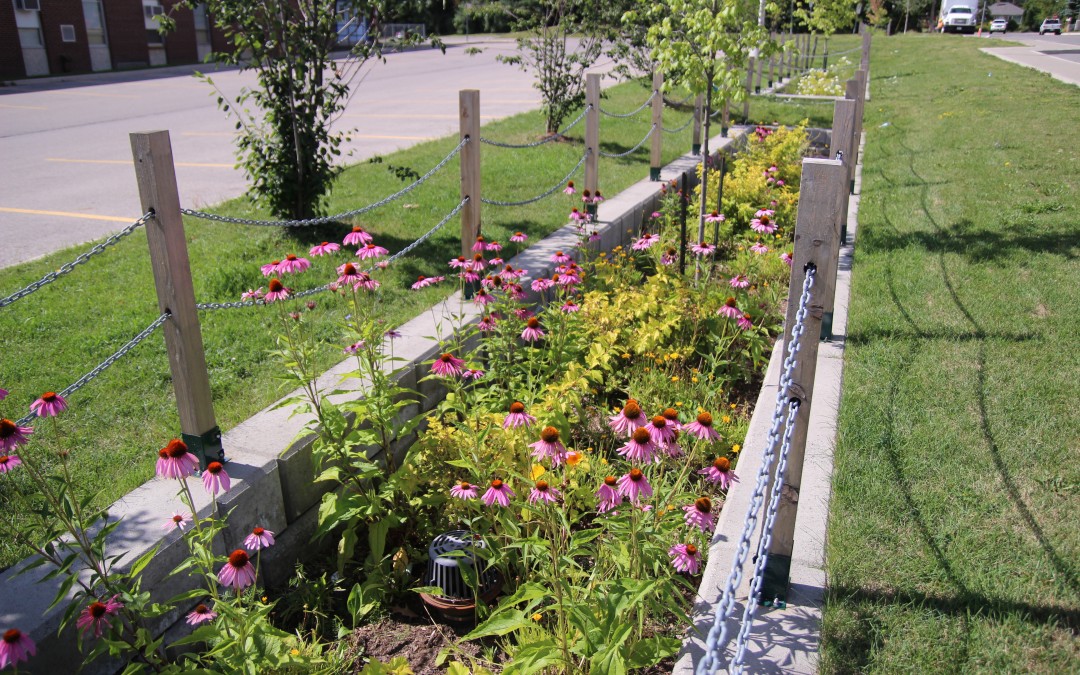On 1 March, 2016, Green Communities Canada and Credit Valley Conservation are hosting a workshop Roads and Runoff: implementing green streets in the Greater Golden Horseshoe (Clarke Memorial Hall, 9-4pm. $40 entrance fee includes lunch and refreshments). See agenda and register.
The workshop is targeted at decision-makers, practitioners, and others with an interest in the potential for managing urban rainfall in rights-of-way. It will feature keynote speaker Robert Goo of the USEPA, and other speakers from City of Mississauga, City of Toronto, Region of Peel and the Town of Halton Hills.
There are nearly 200,000 km of roads in Ontario, creating over 1,100 square kilometers of impervious surface. Twenty-five millimeters of rainfall across the province generates over 25 billion litres of stormwater runoff, and millions of kilograms of pollution. Most of this pollution eventually ends up in the Great Lakes.
Managing road runoff through rain gardens, bioswales, infiltration galleries or urban trees in the rights-of-way reduces runoff volumes and stormwater pollution. It can also make streets safer and more pleasant for pedestrians and cyclists, while sequestering carbon.
Some cities are now beginning to institutionalize this approach, through complete streets and green streets policies. Toronto is currently developing Green Streets Technical Guidelines to be used in conjunction with its Complete Streets guidelines. Philadelphia and Boston both take similar approaches.
Pilot projects which infiltrate stormwater runoff in rights-of-way have proven very successful. Credit Valley Conservation has produced a number of case studies detailing road right-of-way low impact development projects, and has developed a guide to help municipalities implement further projects. Costs have consistently been shown to be lower and performance has exceeded expectations.
However, despite all this, infiltrating stormwater in rights-of-way is still not the norm in most Ontario cities, and many road reconstruction projects are implemented without consideration for innovative stormwater management. There are a number of barriers that contribute to this including lack of capacity, concerns about pollution and the impacts on groundwater, competing interests for limited space in rights-of-way, maintenance concerns, provincial and municipal standards, and funding. One of the goals of the 1 March workshop is to brainstorm solutions to start addressing these barriers.
Funding for the workshop has been provided by the Places to Grow Implementation Fund (Government of Ontario).
This article was published in The Umbrella Stormwater Bulletin Issue 40.
Poll
Does your municipality implement green streets?
- Yes, it’s business as usual (0%, 0 Votes)
- Sometimes – there have been a few projects (100%, 5 Votes)
- No (0%, 0 Votes)
- I don’t know (0%, 0 Votes)
Total Voters: 5


